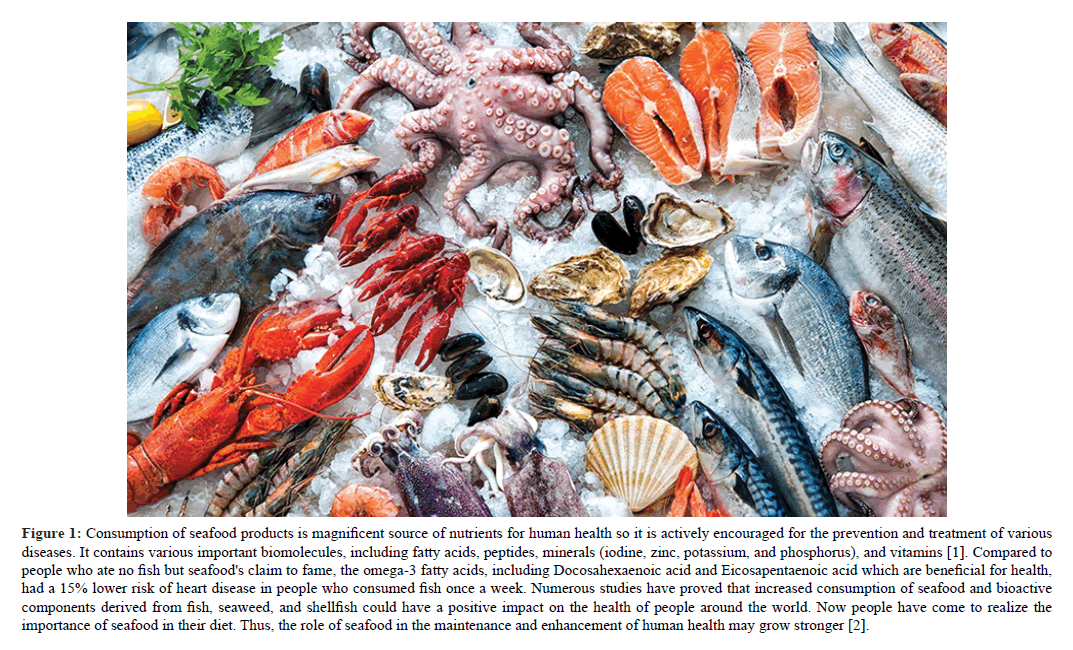ISSN : 2348-1927
Annals of Biological Sciences
Health effects of Sea Food Consumption
Ayota Yoshida*
iMedPub, Green Lane, London, UK
Abstract
Consumption of seafood products is magnificant source of nutrients for human health so it is actively encouraged for the prevention and treatment of various diseases. It contains various important biomolecules, including fatty acids, peptides, minerals (iodine, zinc, potassium, and phosphorus), and vitamins
Image
Figure 1: Consumption of seafood products is magnificent source of nutrients for human health so it is actively encouraged for the prevention and treatment of various diseases. It contains various important biomolecules, including fatty acids, peptides, minerals (iodine, zinc, potassium, and phosphorus), and vitamins [1]. Compared to people who ate no fish but seafood's claim to fame, the omega-3 fatty acids, including Docosahexaenoic acid and Eicosapentaenoic acid which are beneficial for health, had a 15% lower risk of heart disease in people who consumed fish once a week. Numerous studies have proved that increased consumption of seafood and bioactive components derived from fish, seaweed, and shellfish could have a positive impact on the health of people around the world. Now people have come to realize the importance of seafood in their diet. Thus, the role of seafood in the maintenance and enhancement of human health may grow stronger [2].
References
- https://www.mdpi.com/journal/foods/special_issues/seafood_products_food
- Hosoma R, Yoshida M, Fukunaga K (2012) Seafood consumption and components for health. Glob J Health Sci. 4: 72-86.
Open Access Journals
- Aquaculture & Veterinary Science
- Chemistry & Chemical Sciences
- Clinical Sciences
- Engineering
- General Science
- Genetics & Molecular Biology
- Health Care & Nursing
- Immunology & Microbiology
- Materials Science
- Mathematics & Physics
- Medical Sciences
- Neurology & Psychiatry
- Oncology & Cancer Science
- Pharmaceutical Sciences

